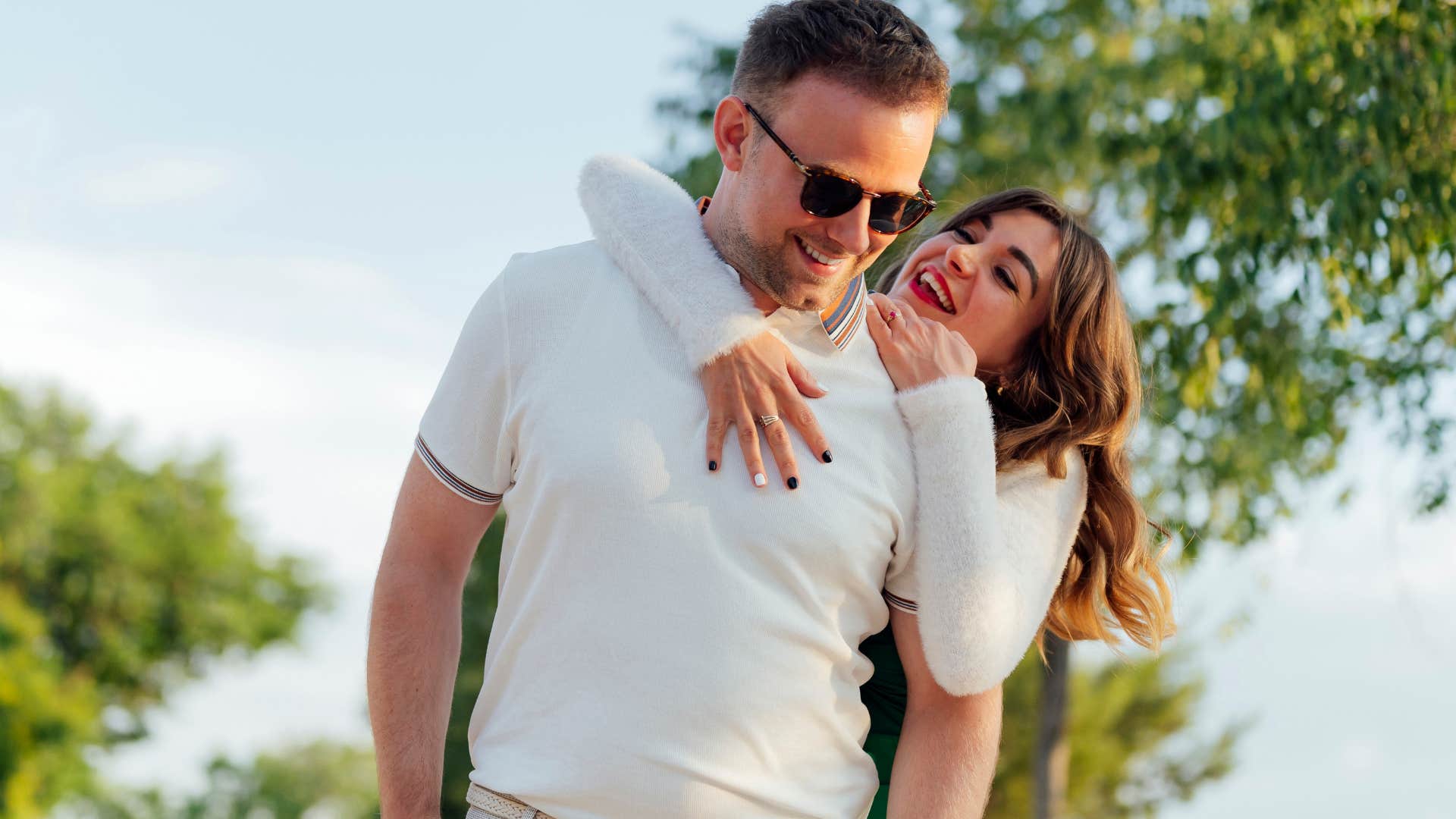These 6 Invisible Factors Determine Who You Fall In Love With, Says Psychology
Is love out of our control or something we choose to happen?
 Sonny Mauricio | Pexels
Sonny Mauricio | Pexels There are a lot of theories attempting to understand the dynamics of love. Many offer compelling ideas about why we choose one person over another, but all theories are based on the fundamental belief that each of us has a unique personality that was formed by our personal experiences and biology.
To help me become more conscious of the unconscious factors that influence who I fall in love with, I took some time researching what causes us to choose who we do and do not fall in love with.
I propose that the selection of the people we fall in love with and marry is based on our unique human experiences that condition us to create behaviors, expectations, and desires that are associated with our past emotional rewards. These emotional rewards become the expectation of what a cue from an interaction, physical trait, and so on will reward us with love and security.
These 6 invisible factors determine who you fall in love with, says psychology:
1. Biology
 Miljan Zivkovic / Shutterstock
Miljan Zivkovic / Shutterstock
Not only do our mothers and fathers pass on their genes that carry the potential for future health issues as well as the mixing of chromosomes, but the environment in the womb can also change the balance of key hormones that determine our temperament.
The late biological anthropologist Helen Fisher found that specific chemical ratios and interactions manifest in four broad personality types. Some males are exposed to more estrogen in the womb, while some females are exposed to more testosterone. Such exposure affects the ratio and degree to which one expresses personality traits related to these chemicals, at least initially.
As it turns out, certain chemicals create personalities that are attracted to each other, while other chemicals are attracted to complementary personality traits. This can change over time due to our experiences in …
2. Culture
 Miljan Zivkovic / Shutterstock
Miljan Zivkovic / Shutterstock
The culture we grow up in provides us with feedback about what we should find attractive and how we should behave to be attractive to someone else. For example, at the end of the 20th century, the US threatened to hold evidence of Fidel Castro’s daughter, who was conceived in an extramarital affair, as a bargaining tool.
But “in South America, we expect our leaders to have mistresses. If one of our leaders did not have a mistress, the populace would want to know what was wrong with him.” Even within cultures, some subgroups have different traditions as to what is acceptable and expected in love relationships. This is the heart of demographics.
Even in our post-modern era, the chant “log on to intimacy” characterizes our millennium’s style of flirting. Webcams and cell towers replace the messy “wet-ware” of body fluids, saliva, sweat, and body odor.
The culture includes everything we have come to recognize as good or bad in a society. These shape and define what is socially attractive.
Cultural factors, particularly the influence of individualism and collectivism, family expectations, and the impact of globalization and modernization, significantly shape individuals' experiences of love and their choices in romantic relationships. Research has found that individuals internalize cultural definitions of love and relationship expectations through observation, role modeling, and reinforcement from childhood onwards.
3. Social effects
 Zamrznuti tonovi / Shutterstock
Zamrznuti tonovi / Shutterstock
At the age of five, we begin to cultivate social/emotional attraction and bonding. You discover which kids in Kindergarten like to play with Legos and which kids like to eat their boogers. Depending on where your peers and you perceive your standing in the social hierarchy, you may be subjected to bullying, peer pressure, or hazing throughout your life. These experiences affect what you find attractive.
Maybe you were bullied in elementary school and ended up dating a more controlling woman by college. Or perhaps you went the other route and sought out submissive women so you could feel like you finally had some power. Our socio-economic status and perceived value relative to others affect our sense of self and create social cues of what to engage in or stay away from in terms of our intimate relationships.
4. Family
 AYO Production / Shutterstock
AYO Production / Shutterstock
The most crucial factor in determining why we fall in love is family. As American psychologist Daniel Goleman says, "The interactions of life’s earliest years lay down a set of emotional lessons based on the attunement and upsets in the contacts between the infant and caretaker."
Our family interactions, values, and even the religion of your parents affect the values and expectations of how your intimate relationships should be when you get involved with someone else in adulthood. I’ve studied a ton on attachment theory and have recognized the major ways our childhood attachment with our mothers and fathers imprints beliefs about what we deserve in a relationship.
If our parents inconsistently met our needs, we end up manifesting these insecurities in our adulthood relationships. For example, anxious people tend to be attracted to Avoidants because the Anxious feel valued when they overinvest their emotions into the relationship.
Meanwhile, Avoidants feel happy when they underinvest their emotions into the relationship. Despite the initial counterbalance, the relationship turns into the most toxic relationship of them all.
Family life lays the groundwork for how we should behave and treat our loved ones. This is why the abuse of perpetuating masculinity is passed down from generation to generation.
Family therapist Terry Real says, "In homes around the world, violent fathers pass on active trauma they received as a son to their sons as if the abuse and toughness were a gift."
And so the chain goes across generations, link to link. Fathers who abuse are doing more than punishing infractions. They are teaching their sons, just as they have been taught, what it means to be a man and how to love as a man.
Such violence in our youth may be passed on into our intimate relationships with women as well. Both are unhealthy and destroy loving relationships.
While family history significantly impacts partner choices, it does not entirely determine them. Individuals can develop self-awareness, seek therapy, and cultivate healthy relationships to break free from negative patterns.
Research emphasizes the process of partner selection, acknowledging the interplay of conscious and unconscious factors, and the role of attraction, mutual interest, and relationship development over time.
5. Self
 Miguel Lifestyle / Shutterstock
Miguel Lifestyle / Shutterstock
All of the factors above influence your self-perception and personal interest. They directly influence your worth relative to what you deserve and who you should be associated with.
All of the subtle life experiences we have influenced our self-esteem, confidence, and the things we find alluring or shameful — body image, fantasies, beliefs, etc.
All of these factors make up the traits you seek in someone you will fall in love with. What matters most is at what point in your life these various experiences come into play.
6. Time
 Drazen Zigic / Shutterstock
Drazen Zigic / Shutterstock
Why is it that we have such complex mechanisms in picking people we choose to date and marry? There are over 7 billion people on the planet. This gives you thousands of potential people you could reproduce with, but most of these people go unnoticed.
From an evolutionary perspective, this makes sense, especially in a species in which individuals are, well, individual from a genetic and experiential perspective. Such diversity makes hybrid traits, which enhance survival across generations during environmental changes that often occur unpredictably.
A 2018 study explained that readiness and the timing of initial encounters contribute to partner selection. Shared experiences and relationship length further shape the relationship, while perceptions of time scarcity and the availability of potential partners also play significant roles in finding and sustaining love.
Our partner preferences are based on our personal experience with cues that predict rewards, love, and happiness. Despite trying to narrow down why we choose who we choose, I’ve concluded that each person has unique ideal partner traits that are directly based on their life experiences.
Kyle Benson provides research-based tools to build long-lasting relationships. His work has been featured on Medium, Business Insider, Huffington Post, Elite Daily, Thrive Global, The Good Men Project, and more.

